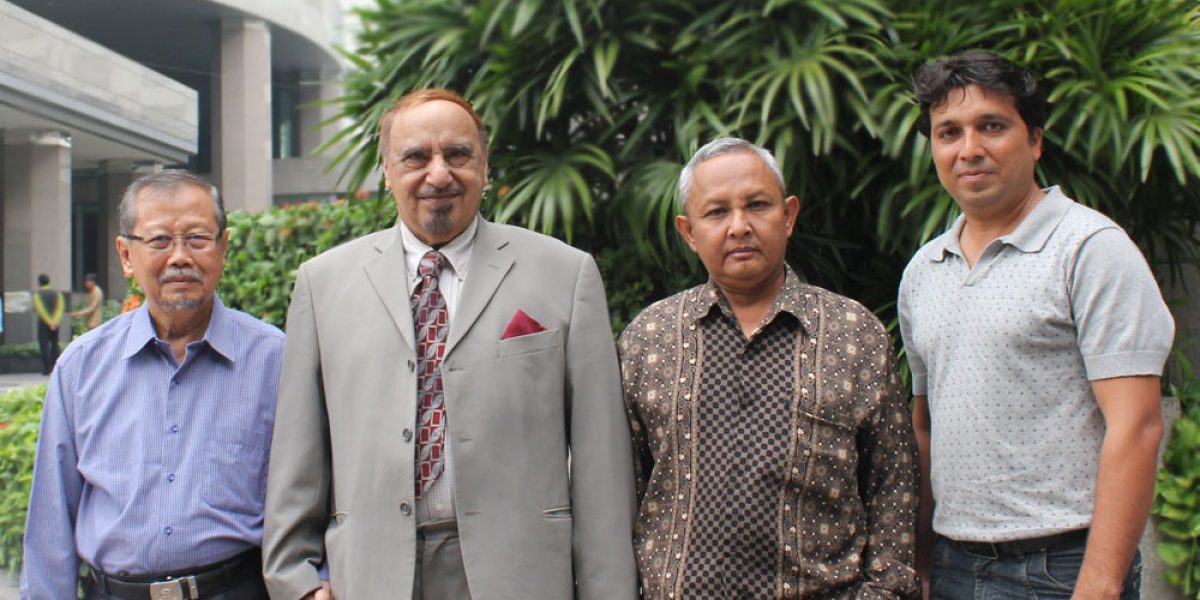Thailand: Ahmadi asylum seekers trapped in detention
18 January 2011|Oliver White

Bangkok, 18 January 2011 – Ahmadi asylum seekers from Pakistan have lost a great deal. Religious persecution in their country has driven them from their homes, family, and careers to a place that offers little in the way of protection. Despite facing arrest and detention they never lose their dignity and resilience.
“Life is hard for us here in Bangkok, but we have one another. Our community is strong and we suffer together,” explained a community worker who avoided recent arrests of Ahmadis in Bangkok.
The Ahmadis are a Muslim minority group. They are considered heretical by orthodox Muslims in Pakistan and are declared non-Muslims by the State because of their alternative interpretation of the finality of Prophet hood. A number of laws have been passed that make it a criminal offence for Ahmadis to profess, practice and preach their faith as Muslims.
“Life in Pakistan for the Ahmadis has become a living hell. Hundreds have been murdered just because of their faith. Posters that claim ‘Ahmadis deserve to be killed’ are posted on walls to incite public hatred towards Ahmadis,” said Dr. Iftikhar, OBE and Consul General of Tuvalu, on a visit to raise awareness of the plight of Ahmadis in Pakistan.
Over the past three years, nearly 456 Ahmadis came to Bangkok in search of protection. But on 14 December 2010, at 6:30 a.m., Thai immigration officers raided the homes of 86 Ahmadi asylum seekers and refugees. Scared and disorientated, the group, including many women and children were bundled into police vans and driven to Bangkok’s immigration detention centre, where they were processed and sent to court for violating Thailand’s strict immigration policy.
Urban refugees and asylum seekers in Thailand without a valid visa – regardless of whether or not they are documented by UNHCR [United Nations High Commission for Refugees] – are considered “illegal entrants” by the authorities.
Facing persecution at home and arrest and indefinite detention in Thailand, the Ahmadis are without solutions.
“Only people living this life can know what we are going through,” said an asylum seeker who is now back in Pakistan after being arrested and detained.
Dr. Iftkhar Ayaz had a simple message to share – that the Ahmadis are peaceful people who are facing global persecution and should be offered protection under the various human rights treaties and conventions.
“These people have come here to escape injustice, cruelty and the threat to their lives,” said Dr. Iftikhar Ayaz on his mission to Thailand.
Conditions in detention
A month after the arrests, 54 Ahmadis are still detained and the others have returned to Pakistan. Immediately after the arrests, up to 150 women were sharing one cell. With no room for everyone to lie down the women took turns to sleep whilst children jostled for space at the entrance to the dirty communal toilets.
“Those Ahmadis who have gone home have not done so because they wanted to or because they think it is safe. The conditions in IDC are so terrible many felt they would rather take the risk of returning to Pakistan,” said the community worker.
Some of those arrested were recognised as refugees, but the majority were still in the process of becoming recognised by UNHCR. One asylum seeker had been waiting for nearly a year, after having his interview postponed eight times. Acutely aware that without status he would spend months in detention under difficult conditions, he decided to risk his safety and return to Pakistan.
International Protection
Dr. Iftikhar Ayaz is urging governments such as Thailand and the international community to show compassion and offer Ahmadis temporary protection until long-term solutions can be found.
“The issue of Ahmadis leaving Pakistan is an issue of human rights,” said Dr. Iftikhar Ayaz, adding, “despite not being a signatory they (Thailand) have tolerated the presence of UNHCR. If they have allowed this organisation to stay then they should respect the rules of the Convention.”
While the Ahmadis wait desperately for UNHCR to recognise them as refugees and facilitate their resettlement to a third country they are forced to live in fear and with uncertainty.
“What is important is that those who flee (Pakistan) are provided refuge by the international community and treated with respect and dignity. Thailand is currently president of the UN Human Rights Council and has a great responsibility to observe the UNHCR Conventions and Charters,” said Dr. Iftikhar Ayaz.


